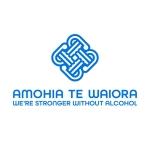Drink driving not just a recidivist issue
Recent highly publicised cases of repeat drink drivers recording very high blood alcohol levels are reinforcing the ‘urban myth’ that drink driving is mainly a recidivist problem, says the Alcohol Advisory Council (ALAC).
ALAC Chief Executive Officer Gerard Vaughan said such stories often prompted editorials and letters to the newspapers suggesting the drink drive problem in this country was solely a recidivist problem.
Mr Vaughan said three quarters of the drivers involved in alcohol-related casualty crashes between 2005-2007 had no previous drink-driving offences within the five years prior to the crash.
Less than a quarter had a drink driving offence in the five years before their crash which clearly demonstrated that recidivists were not the main problem, he said.
“The fact that a drink driver is more likely to be a first time offender, than a recidivist, is consistent with the findings from surveys looking at alcohol use and driving,” he said.
“The Ministry of Health’s Alcohol Use in New Zealand 2007/08 survey suggests that around 20 percent of people who have drunk alcohol over the last year have also driven a vehicle while feeling under the influence of alcohol.
“To address drink driving we need to lower the blood alcohol content (BAC) for adult drivers from 0.08 (80mg alcohol/100ml of blood) to 0.05mg (50mg alcohol/100ml of blood) and then focus on measures aimed at recidivists such as compulsory alcohol interlocks.”
Mr Vaughan said lowering the adult drink drive limit to 0.05 would save between 15 and 30 lives, and prevent between 320 to 686 injuries every year. That corresponded to an estimated annual social cost saving of between $111 million and $238 million.
ALAC has been pushing for some time for time for the legal adult blood alcohol content (BAC) for driving to be lowered from 0.08 to 0.05. The move was suggested in the Ministry of Transport’s Safer Journeys strategy. However, while the Government earlier this month adopted some of the recommendations in the Safer Journeys strategy such as a zero alcohol limit for drivers under 20, it deferred a decision on the adult level to April when it will be considered alongside another option of doing more research on the level of risk posed by drivers with a BAC between 0.05 and 0.08.
For further information or comment contact ALAC Senior Communications Advisor Lynne Walsh on 021 369 081.
